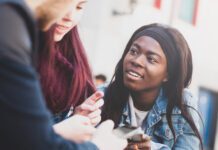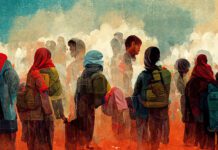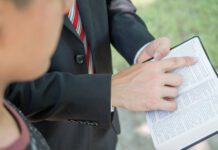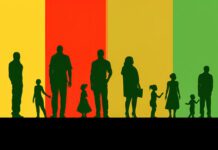In the intervening years, Asian Americans have been lumped together and held up as the “model minority” by the dominant racial group, ignoring the hardship and poverty many of them face. Moreover, this label pits Asian Americans against all other minorities. The implicit question raised is why other people of color can’t be like Asian Americans, including African Americans?
In regard to relations specifically with African Americans, there have been both positive and negative experiences. However, the majority have been negative as Asian Americans have experienced victimization by members of the black community. Consequently, Asian Americans become wary of African Americans and assign disprivilege to black skinned people.
My wife was a New York City public school counselor. On the first day of school one year, she was called into a classroom to address the frantic crying of a three-year old boy. He had just arrived from China and did not speak English. The boy kept repeating a specific phrase in his native dialect. It was “black devil.” The teacher’s assistant was a black woman and he was deathly afraid of the “black devil” each time she walked near him.
Black people are called “black devils” and white people are “white devils” in vernacular Chinese. Calling both black and white people “devils” is a reflection of the ethnocentric view of the Chinese that has remained in our vocabulary. If this boy was freshly arrived in the United States, where did he acquire his racial understanding of people if not from his family and their friends who had warned them about the blacks in America? He was assigning black disprivilege to her at the tender age of 3, a fear he did not have of the “white devils”!
Asian Americans have universally experienced discrimination as a minority people. Stories of injustice, mayhem, hate crimes, internment camps and even lynching are part of our history in this country. Nevertheless our overall experience pales in comparison to black disprivilege. We are not taught the sixteen commandments that Cameron Welch learned from his mother by the time he was 11 years old, rules which he has shared on Tik Tok. We do not need to constantly worry, as many African American men do, whether they will return home safely every time they leave their house. We are not looked upon with suspicion by the police purely on the basis of color.
As the so called model minority, we’ve been extended some of the residual benefits of white privilege. As we’ve risen through the ranks, we are able to command high salaried positions. We can live in affluent neighborhoods and give our children access to educational, artistic and recreational opportunities to better ensure a prosperous future for them. It is easy for us to turn a blind eye to the struggles of the less educated Asian American immigrants, much less speak out against black disprivilege. It is safer and easier to maintain the stereotypical Asian silence (One quality that makes us such a “model minority”.) than to engage in activism to support those outside our race.
As an Asian American, I need to continue to repent of my own learned prejudices and support the idea that Black Lives Matter. I need to voice my objection to Black Disprivilege and see each person as an individual, not a race. Their struggle is also my struggle as a person of color.











